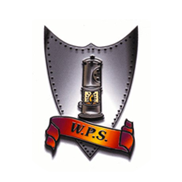What were the findings of the inspection team for Wardley Primary?
Ofsted - Information for Parents
Why does Ofsted inspect schools?
Ofsted inspect schools to provide information to parents, to promote improvement and to hold schools to account for the public money they receive. School inspections are required by law. Ofsted provide an independent assessment of the quality and standards of education in schools, and check whether pupils are achieving as much as they can.
Who inspects schools?
His Majesty’s Inspectors and Ofsted Inspectors (who in most cases are serving school leaders who inspect for Ofsted for an agreed number of days each year) carry out the inspections. All inspectors have been trained to, and assessed against, Ofsted’s standards.
What judgements do inspectors make on a graded inspection?
Inspectors will make graded judgements on overall effectiveness and the 4 key judgements:
- the quality of education
- behaviour and attitudes
- personal development
- leadership and management
When applicable, inspectors will also make a graded judgement on the effectiveness of the early years provision in the school.
Inspectors use the following 4-point scale to make all judgements:
- grade 1 (outstanding)
- grade 2 (good)
- grade 3 (requires improvement)
- grade 4 (inadequate)
The school must take all reasonable steps to make sure that parents of pupils at the school receive a copy of the inspection report.
What happens during an inspection?
Inspectors talk to the headteacher and other school leaders who are responsible for making decisions about how the school operates (for example, on curriculum and behaviour), governors, staff and pupils. They also consider your views as a parent.
They spend most of their time observing a wide range of lessons and looking at the quality of education in the school, and the impact of the curriculum. Inspectors give specific attention to the acquisition of knowledge, understanding and skills in lessons.
They also look at the personal development, behaviour, attitudes and welfare of pupils at the school, the promotion of spiritual, moral, social and cultural development; and how well the school is led and managed.
How can I make my views known?
If you are the registered parent of a child at the school, the school will send you a letter notifying you of the dates of the inspection. This letter provides you with details and options for providing your views.
Can I speak to the inspectors?
You may have the chance to speak to the inspectors during the inspection, for example at the start of the school day. The inspection administrators will be happy to pass on messages to the inspectors and may be able to arrange telephone conversations if you are unable to speak to them in person. Their contact details will be in the letter that tells you about the inspection.
What happens after the inspection?
The lead inspector reports their judgement to the headteacher and governors. The inspection findings are published in a report for the school, parents and the wider community. Inspection reports provide information about the effectiveness of the school’s work and contain recommendations about what the school should do to improve further. Reports are published on our reports website.
Where can I find further details about school inspections?
The education inspection framework sets out the principles that apply to inspection and the main judgements that inspectors make when carrying out inspections.
The school inspection handbook and school monitoring handbook set out the statutory basis for inspections and what schools can expect at inspections and provide guidance for inspectors on making their judgements.
What happens if I have concerns about my child’s school?
If you are concerned about your child’s school, you should start by talking directly to the teachers or headteacher or, if necessary, the governing body or the local authority.

